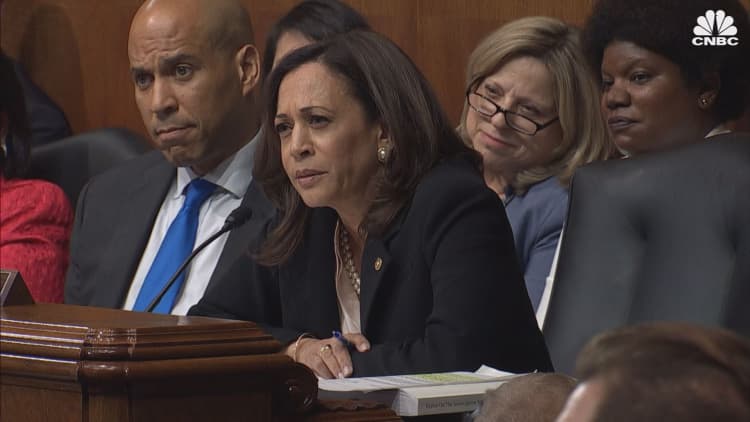House Judiciary Committee Chairman Jerrold Nadler, D-N.Y., set a Wednesday vote to hold Attorney General William Barr in contempt of Congress for defying the panel's subpoena for an unredacted version of special counsel Robert Mueller's Russia report.
The committee had set a Monday morning deadline for the Justice Department to comply with their subpoena to provide Congress with Mueller's full report and its underlying evidence. Nadler had threatened Barr with contempt after the DOJ missed the committee's first deadline for the materials last Wednesday.
In April, Barr released a redacted version of the 448-page report on Mueller's 22-month probe into Russian election meddling, possible coordination between President Donald Trump's campaign and the Kremlin, and possible obstruction of justice by Trump himself.
"The attorney general's failure to comply with our subpoena, after extensive accommodation efforts, leaves us no choice but to initiate contempt proceedings in order to enforce the subpoena and access the full, unredacted report," Nadler said in a statement.
The committee's ranking Republican, Doug Collins, R-Ga., criticized the Democratic majority's moves in his own statement.
"They know the Justice Department is working to negotiate even as they pursue contempt charges, making their move today illogical and disingenuous," Collins said. "Democrats have launched a proxy war smearing the attorney general when their anger actually lies with the president and the special counsel, who found neither conspiracy nor obstruction."
The committee is scheduled to hold the vote, which pertains to a contempt resolution and report, during a markup hearing Wednesday at 10 a.m., according to a press release from the panel. If the vote passes, the resolution and report will move to a full vote in the House, where Democrats hold a majority of seats.

Before publicly releasing the report in mid-April, Barr made redactions in four categories, including grand-jury information and sections related to ongoing investigations. Democrats are at odds with Republicans and the DOJ over whether federal rules allow that information to be shared with Congress.
On the eve of his testimony before the Senate Judiciary Committee last week, Barr had made a less-redacted version of the report available in a secure room to six Republicans and six Democrats in Congress. Democrats have so far refused to look at this version of the report, instead doubling down on their demand that Congress be able to see the entire document.
In a response Monday afternoon, DOJ spokeswoman Kerri Kupec said that Barr has "taken extraordinary steps to accommodate" the Judiciary Committee's requests for information, but Nadler "has not reciprocated."
"Despite this, the attorney general will continue to engage in good faith with Congress on these issues," Kupec said. The DOJ sent a letter inviting House Judiciary Committee staff to visit the department Wednesday "to discuss a mutually acceptable accommodation," Kupec said.
Democrats have excoriated Barr's handling of the Mueller probe since the special counsel's report was submitted to the DOJ in late March. Less than two days after receiving the lengthy report, Barr released a four-page summary of the principal conclusions from the probe, which Democrats have complained was intended to put forward a more positive image of Trump than the report itself does.
The special counsel's team found insufficient evidence to show that Trump's campaign or his associates had coordinated with Russia. Mueller also did not make a determination on whether Trump obstructed justice, but listed numerous examples of potential obstruction by Trump. Barr and Deputy Attorney General Rod Rosenstein, however, concluded in the summary that Mueller's probe didn't find enough evidence to support an obstruction offense.


